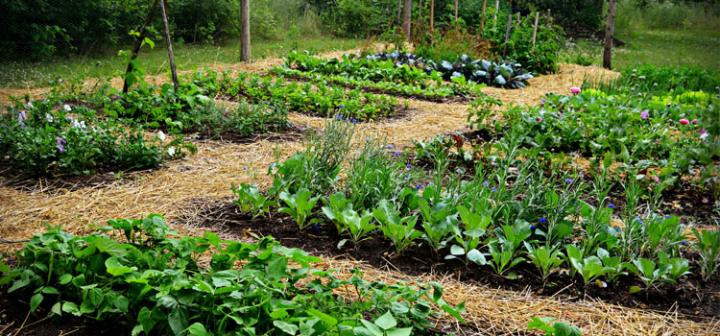5 things not to forget when planning your garden
There are 5 key things that everyone forgets when planning their vegetable garden. Can you guess them? There’s a lot to consider—from choosing where to put your plants to selecting perfect companions for them. Let’s get a good start and find out what NOT to forget!
1. Consider Where Sun and Shade Fall
Where sun and shade fall is an essential consideration because it will determine how quickly and healthily your crops will grow. Almost all vegetables grow best in 6 to 8 hours of full sun in all but the hottest regions. But also consider where the sunniest spots are. In these spots, you should plant your warmth–loving crops like tomatoes and peppers.
Spend some time in your garden and make a note of where the sunshine falls at different times of the day, and consider how this will change over the course of the year. Remember, shade cast by deciduous trees in summer won’t be there after they have shed their leaves in autumn, which is good news for winter crops like kale, spring cabbage and Asian greens.
Consider the position of the midday sun and plan beds so that taller crops aren’t shading shorter ones. Or grow plants that can tolerate shade such as salads and leafy greens behind your lankier crops.
See video demonstrating these 5 tips!
2. Make a “Hub” for Your Garden
This may sound like an “extra” but it’s so much more enjoyable to garden when you a small space to work. Ever tried to pot up soil or do other jobs in an awkward corner? Create a small place for those jobs to occur.
Be sure to include a bench space, old desk – or even a repurposed kitchen sink! – to work on your seedlings and plants. It will need to be undercover, or capable of being covered, and you’ll need space close by to put all those plants. If you haven’t got the space or budget for a full-sized greenhouse, buy or make a cold frame from scraps!

3. Choose Happy Companions
Which crops will you plant next to each other? Companion planting, when plants are grown next to each other for the benefit of one or both, is a very sensible practice, yet one that’s often overlooked. By growing, for example, French marigolds among your tomatoes, you can minimize the risk of aphids, while growing nasturtiums close to brassicas like cabbage may help to lure caterpillars away from your crop.
(Check out our Garden Planner. You can use it to find perfect companion plants for your vegetables by simply selecting a crop or crops then clicking on the Companion Planting button to reveal suitable companions—which can then be dropped into place on your plan.)

4. Plan Your Watering and Water Storage
Plants need water, and even in relatively moist, temperate climates you’ll still need to irrigate from time to time. Make sure your new vegetable garden has some means for easy watering close to hand, such an outdoor faucet.
Mains water is precious, so supplement it where you can with stored rainwater, using water barrels to collect water off house, greenhouse and shed roofs. Water barrels take up very little space but will provide a fantastic source of natural rainwater much preferred by plants – and if you’re on a water meter it’ll save you money too!
5. Include Easy Access Paths
Finally, make sure you can easily get around your vegetable garden. Fail to include garden pathways and you’ll find it harder to tend your crops without standing on and compacting the soil. You should be able to comfortably work on beds from your paths, and ideally have enough room for a wheelbarrow to pass through. Aim for a width of at least 18 inches (45cm), but wider is better where possible.
Paths can be paved or graveled, but they don’t have to be. You can lay woodchip, sawdust, or some other biodegradable material that will need to be topped up once or twice a year; or just leave paths between beds as grass that is mowed regularly.

These simple considerations are easy to forget, but will make your gardening so much easier. We’re sure you’ve got some really exciting plans of your own this growing season, and we’d love to hear about it, so do drop us a comment below to tell us what you’re up to!

TRY OUT THE ALMANAC GARDEN PLANNER FOR FREE
As a courtesy, our Almanac Garden Planner is free for 7 days. This is plenty of time to play around on your computer and try it out. There are absolutely no strings attached. We are most interested in encouraging folks to try growing a garden of goodness!
ADVERTISEMENT
Your email said how to build a raised garden bed, however was not included in the email. I am interested in making my own.
I was also looking for how to build raised beds
Good morning - I too was interested in the topic of raised beds. Your articles are fantastic, so I am looking forward to your ideas. I was hoping to help a neighbour who is starting a garden this year.









